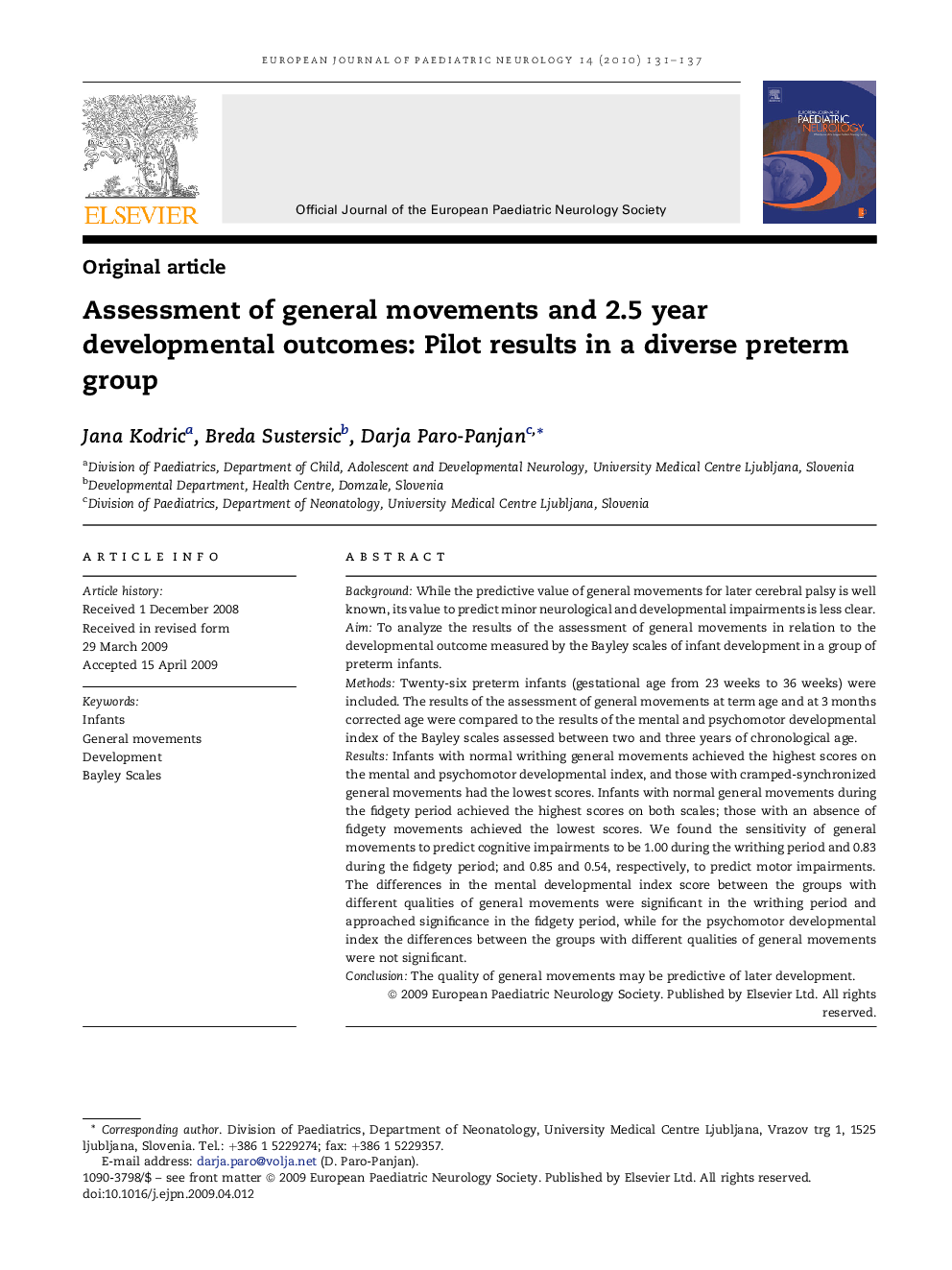| کد مقاله | کد نشریه | سال انتشار | مقاله انگلیسی | نسخه تمام متن |
|---|---|---|---|---|
| 3054359 | 1580048 | 2010 | 7 صفحه PDF | دانلود رایگان |

BackgroundWhile the predictive value of general movements for later cerebral palsy is well known, its value to predict minor neurological and developmental impairments is less clear.AimTo analyze the results of the assessment of general movements in relation to the developmental outcome measured by the Bayley scales of infant development in a group of preterm infants.MethodsTwenty-six preterm infants (gestational age from 23 weeks to 36 weeks) were included. The results of the assessment of general movements at term age and at 3 months corrected age were compared to the results of the mental and psychomotor developmental index of the Bayley scales assessed between two and three years of chronological age.ResultsInfants with normal writhing general movements achieved the highest scores on the mental and psychomotor developmental index, and those with cramped-synchronized general movements had the lowest scores. Infants with normal general movements during the fidgety period achieved the highest scores on both scales; those with an absence of fidgety movements achieved the lowest scores. We found the sensitivity of general movements to predict cognitive impairments to be 1.00 during the writhing period and 0.83 during the fidgety period; and 0.85 and 0.54, respectively, to predict motor impairments. The differences in the mental developmental index score between the groups with different qualities of general movements were significant in the writhing period and approached significance in the fidgety period, while for the psychomotor developmental index the differences between the groups with different qualities of general movements were not significant.ConclusionThe quality of general movements may be predictive of later development.
Journal: European Journal of Paediatric Neurology - Volume 14, Issue 2, March 2010, Pages 131–137